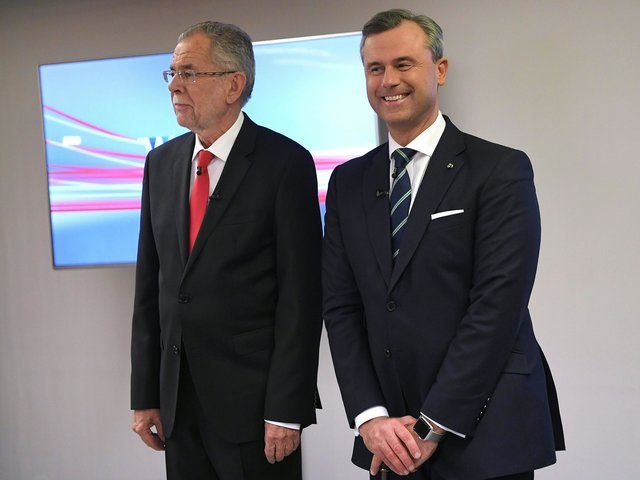On Sunday the people of Austria will vote one again for the new President of the country and the choice has come down to an anti-mass migration populist and a left wing globalist.
This year’s Austrian presidential election has been the longest in the history of Austria’s second republic and is finally coming to an end on Sunday after controversy and scandal. The Austrian voters have two choices for their new head of state, the anti-mass migration populist Norbert Hofer of the Freedom Party or the Left wing pro-European Union candidate Alexander Van der Bellen.
The first round of the election in April saw a massive shake up in the Austrian political scene as Mr. Hofer won the vote with Van der Bellen coming in second. The election was notable for excluding the two establishment parties, the Austrian People’s Party and the Socialist Party from the second round.
The second round a month later was too close to call on election night with a slight lead for Norbert Hofer. After the counting of the postal votes, Alexander Van der Bellen was proclaimed President by a mere 31,000 votes. The victory was not to last as investigations and inquiries from the FPÖ showed serious discrepancies regarding the counting and handling of the postal ballots and the vote was annulled by the courts.
Though the initial rerun of the was scheduled for October 2nd, the same day as the Hungarian migrant referendum, faulty postal ballot envelopes delayed the vote until this Sunday, December 4th.
The two candidates are the most apart on ideas of any recent Austrian election. Norbert Hofer is running on a platform for securing Austria’s borders, improving the readiness of Austrian authorities regarding terrorism, liberalization of the economy, and pro-gun legislation. Hofer’s ideas have attracted a slew of new voters for the Freedom Party including many working class men and women who have traditionally voted socialist.
Hofer has also expressed interest in re-engaging with Russia, supporting U.S. president-elect Donald Trump’s willingness to resume better relations with the nuclear power. He has also expressed an interest in Austria joining the Visegrad Group (V4), which includes Hungary, Poland, Slovakia and the Czech Republic. The group has been notable for having a firm stance against the redistribution of migrants and has supported the reinforcement of the political bloc’s external borders.
His opponent Alexander Van der Bellen is an ex-leader of the left-wing Green Party and a former professor. Mr. Van der Bellen is pro-European Union and wants to see more federalisation, which critics have said will lead to Austria becoming merely a region of a centralized EU. Van der Bellen has also vowed not to allow the FPÖ to form the government even if they win the most votes in the next Austrian federal election.
Despite Van der Bellen’s campaign posters which highlight his patriotism for the Austrian countryside many have criticized him for presiding over a Green Party campaign in 2007 that claimed, “anyone who loves Austria is Sh*t.”
Currently, polls are too close to call the race between the pair, but bookmakers have placed their money behind a victory for Norbert Hofer and an extremist left-wing march Saturday could, according to critics of the march, give even more votes to Hofer.

COMMENTS
Please let us know if you're having issues with commenting.